The HP S700 And S700 Pro SSD Review
by Billy Tallis on September 7, 2017 9:00 AM ESTAnandTech Storage Bench - Heavy
Our Heavy storage benchmark is proportionally more write-heavy than The Destroyer, but much shorter overall. The total writes in the Heavy test aren't enough to fill the drive, so performance never drops down to steady state. This test is far more representative of a power user's day to day usage, and is heavily influenced by the drive's peak performance. The Heavy workload test details can be found here. This test is run twice, once on a freshly erased drive and once after filling the drive with sequential writes.
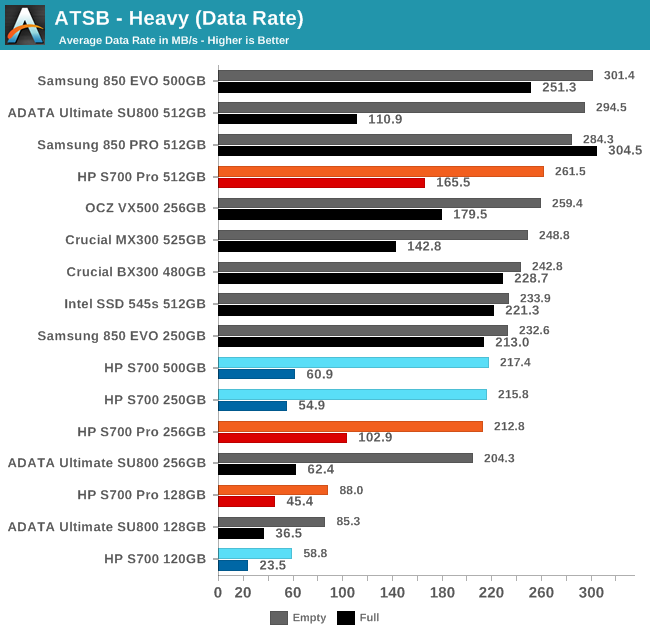
The different classes of SSD can be identified by how much slower they perform when full compared to their fresh out of the box state. On the Heavy test, the HP S700 and S700 Pro tend to deliver average data rates that are close to the mid-range and high-end SATA SSDs when the test is run on an empty drive. When the test is run on a full drive, the best SSDs are only slowed by a few percent, while the DRAMless HP S700's average data rate can drop to a quarter of its other score. The S700 Pro doesn't suffer as badly, and its full-drive performance penalty is much less severe than what the ADATA SU800 suffers from, even when the peak performance of the S700 Pro is lower.
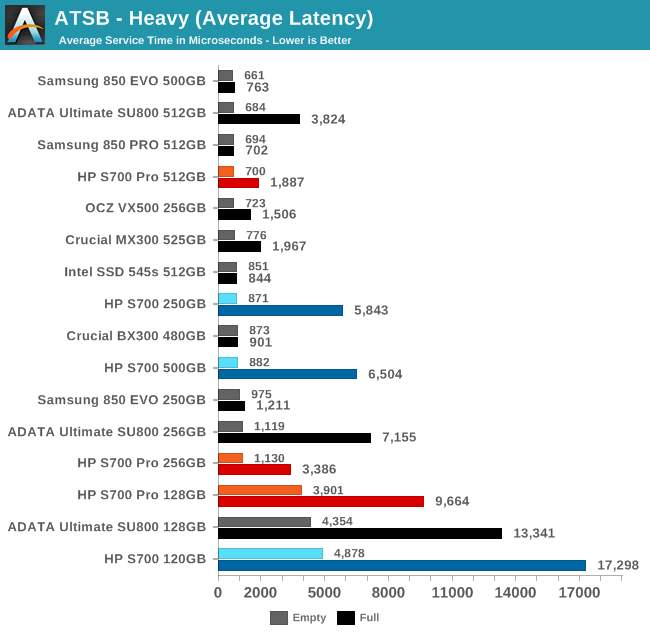
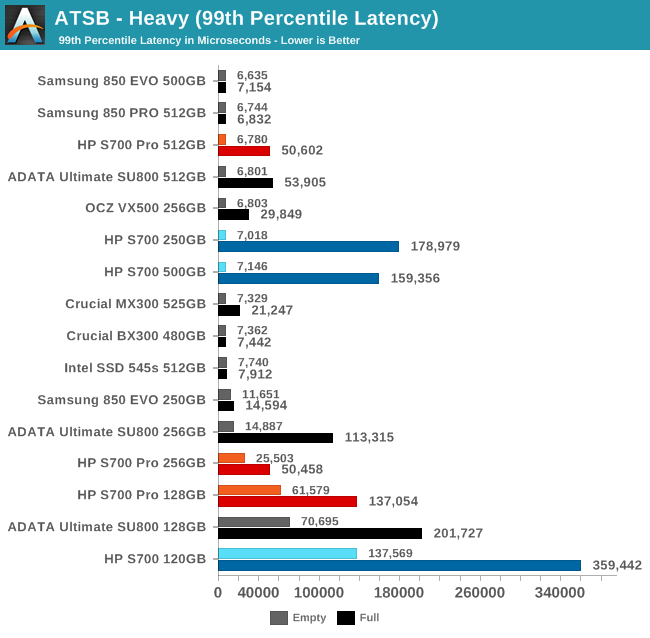
The average and 99th percentile latency scores make the full vs. empty performance differences even clearer. The S700 Pro's average latency is two to three times higher when full, and the S700's average latency can be over seven times higher when full. The differences are larger when considering 99th percentile latencies. The worst of these latency scores are well above the seek times of a mechanical hard drive, though overall performance is still far better than a hard drive can offer on a test with such a high average queue depth (by client workload standards). The 120GB HP S700 is the only HP drive that shows particularly poor latency compared to the competitors when the test is run on an empty drive.
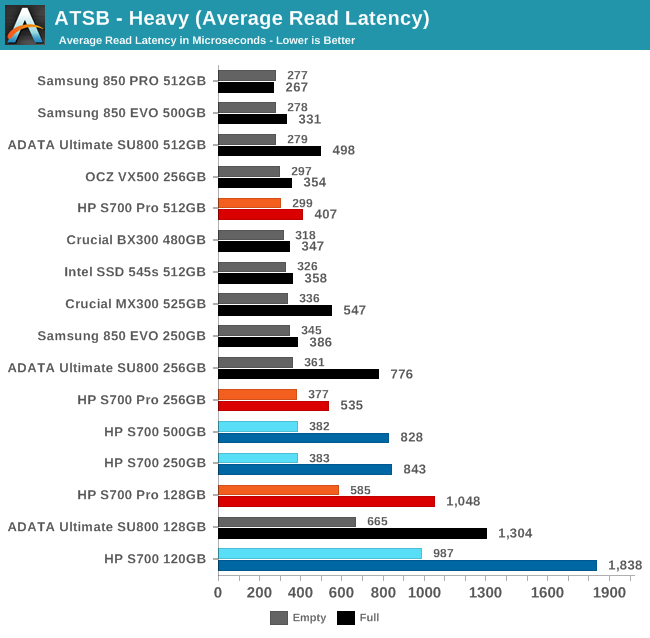
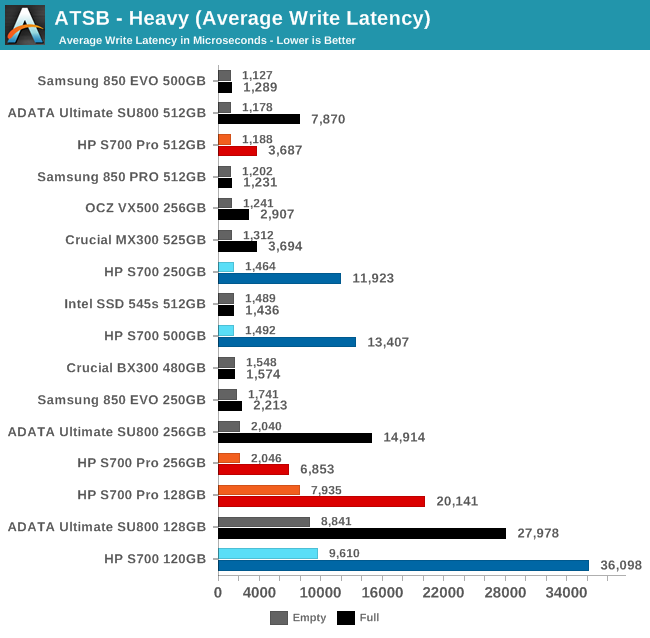
Average read latencies don't vary much among SATA drives when the Heavy test is run on an empty drive; only the 120GB-class drives are significantly slower than par. When the test is run on a full drive, read latencies are merely doubled in even the most strongly affected drives. On the write side, the 120GB-class drives have much higher latency than the rest even when the test is run on an empty drive. The HPs and the ADATA SU800 are the drives that show the most severe impact from the drive being full, with the HP S700 being affected the most and the S700 Pro being less affected than the ADATA SU800.
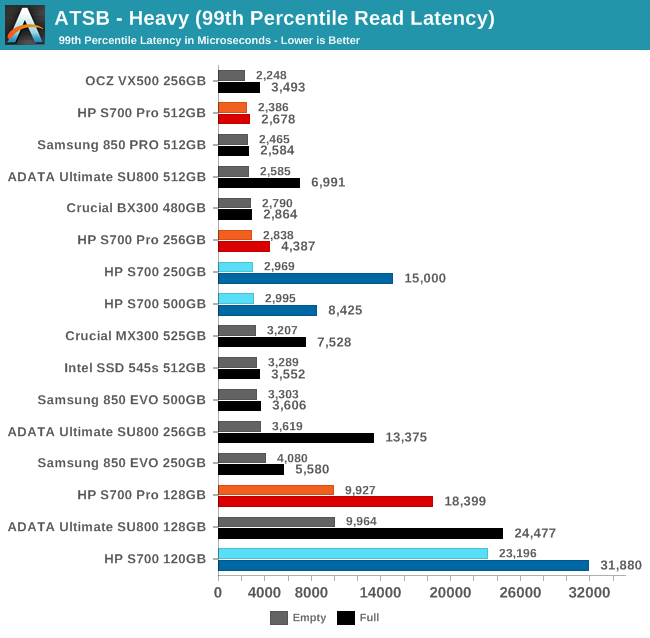
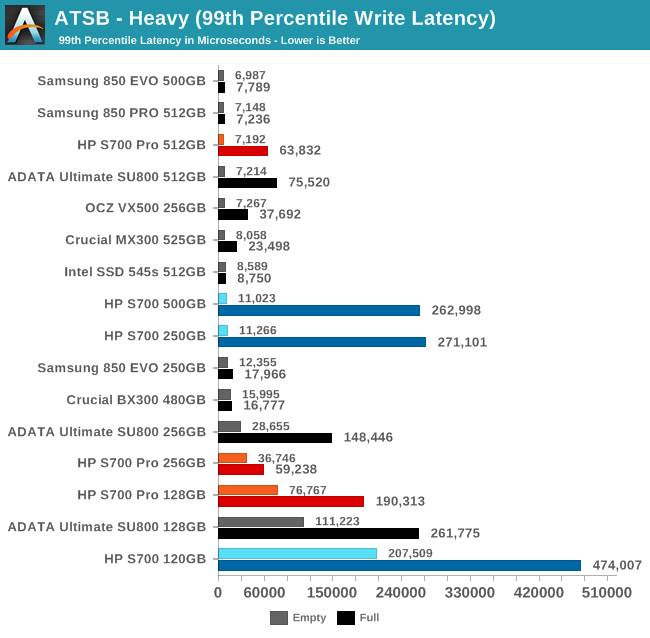
The rankings for 99th percentile read and write latencies are similar to the average latency rankings. The 120/128GB drives are substantially slower than the larger drives, where even the DRAMless HP S700 offers reasonable performance provided it isn't full.
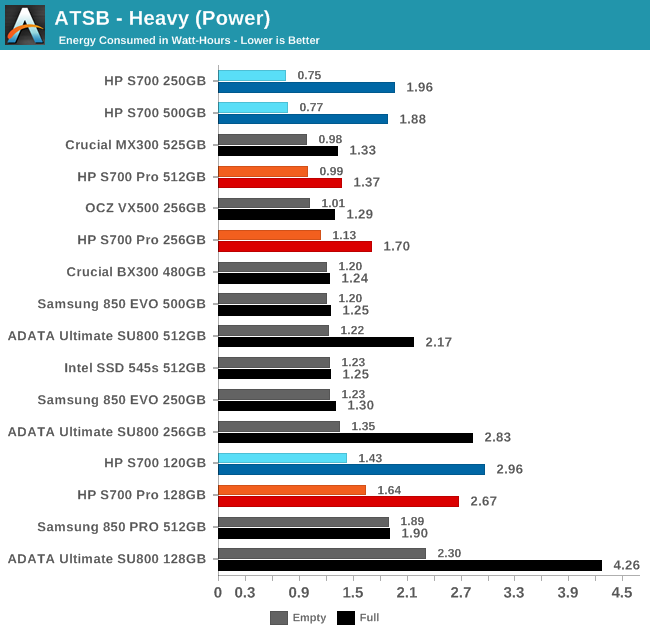
The larger two capacities of the HP S700 take the lead for energy efficiency when the Heavy test is run on an empty drive, and even when full they don't use significantly more energy than the Samsung 850 PRO. The 512GB HP S700 Pro also scores quite well in both scenarios, with energy usage only slightly higher than the Crucial MX300. In all cases, both HP models offer clearly better energy efficiency than the ADATA SU800.










54 Comments
View All Comments
superunknown98 - Friday, September 8, 2017 - link
Did anyone else notice the ADATA SU800 512GB was faster than the HP S700 Pro 512GB for the majority of tests, yet the conclusion said the HP was faster? Granted the HP's of lesser size were faster than their counter parts.petar_b - Tuesday, September 12, 2017 - link
Useless drive. I wouldn't like that drive/controller in my server LOL... Even cheapest Crucial or Micron drives have DRAM at least....morphix - Sunday, April 1, 2018 - link
it's $115 for 512GB @walmartportedbikes - Monday, February 25, 2019 - link
I just had the most annoying failure ever with this HP Pro 512GB drive, formatted it and when trying to install W10 it just died and gave me an I/O device error, it will not be recognized by the bios if connected to a SATA port, but it will be recognized by windows if connected via USB with an enclosure, still not able to format it, or do anything with it, I/O Device error everytime... First and last time I buy one of these drives, they do not even come with trim software, I have never had a problem like this with Samsung, Intel, or PNY SSDs... first time I use HP and failed miserably... reading reviews on Amazon these drives fail as fast as 3 months to 1 year and HP warranty sucks. For $15 extra get an 860 Evo and call it a day, really not worth the savings.